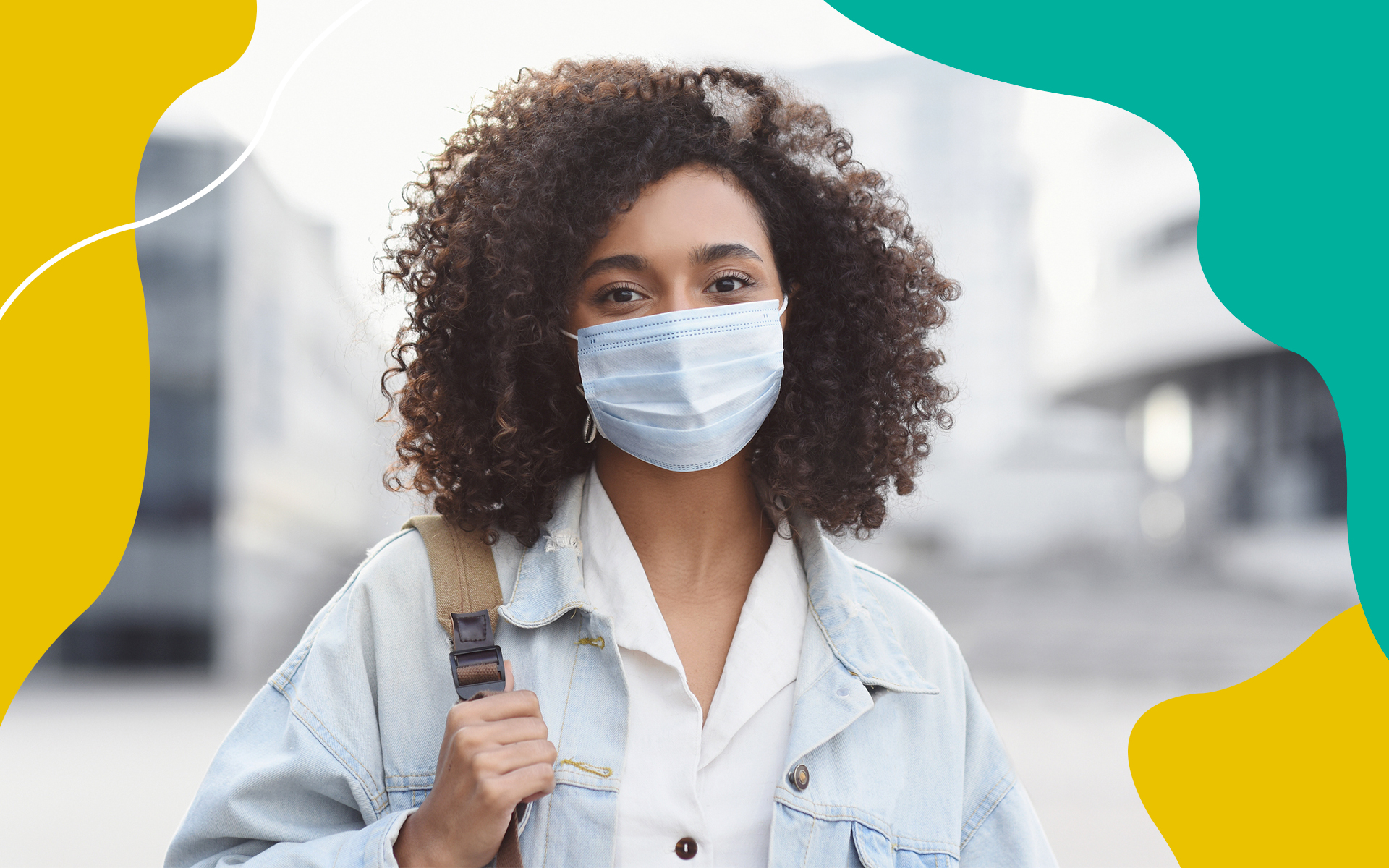
Body + Mind is reader-supported. We may earn an affiliate commission when you buy through some of the links on our site.
Do face masks work for fighting illness? If you spend any time on social media these days, you’ll find that whether or not to wear a mask has supplanted abortion as the most controversial topic of conversation. Everyone seems to feel passionate about the issue.
What’s the science behind all the controversy? Do face masks work for stopping illness? While no straightforward answer exists, the bottom line is that they work imperfectly, but yes, face masks work for fighting illness.
You’ve heard it said a million times, but some folks still deny it — masks protect other people. You could be sick with COVID-19 or another illness without knowing it. Sneezing produces a muzzle velocity of 50 meters per second when sneezing and ten meters per second when coughing. That means, even if you practice social distancing, your germs could spray someone in the next grocery aisle.
Merely speaking uncovered can endanger others. One experiment showed a single spoken phrase spread droplets from 20 to 500 meters. However, blocking the mouth with a damp rag prevented nearly all of the droplets.
Did you ever wonder why dental hygienists and other providers wear standard surgical masks when they scrape your teeth or inject your Botox? While germs can make it around the unprotected corners, it keeps them from accidentally spitting into your mouth or vice-versa. Is it gross to think about someone else’s saliva landing on your tongue if you aren’t romantically involved? Yes. However, there’s a simple solution — cover-up.
Infectious disease is a lot like Vegas. The “house,” or germs, always have the odds in their favor, but you can still take steps to protect against losing your life savings — your health. Colleagues from the University of Texas, the University of California, San Diego and the California Institute of Technology researched the efficacy of masks. They found that using face masks reduced rates of infections by 78,000 in Italy and 66,000 in New York during limited study periods.
Remember, too, that COVID-19 isn’t the only deadly virus out there. The seasonal flu does kill many. One 2013 study discovered that wearing a face mask resulted in a three-fold reduction in the number of virus particles people expelled into the air.
While a mask won’t protect you against all germs, it does tilt the odds slightly. If you’re a gambling soul, you know that anything you can do to improve your chances makes sense. When doing so costs next-to-nothing and protects others, you get a win-win.
Face masks seem odd in the western world. In the days before the novel coronavirus, some locations prohibited folks from wearing face coverings. Now, you can walk into a bank wearing a bandanna on your face, and nobody bats an eye.
However, if you visit many Asian countries, you’ll see civilians strolling around masked-up. Why? Even though these coverings don’t keep out every tiny virus, they do filter out allergens. If digging in your garden always leaves you sneezy and stuffy, whip out a mask and cut the misery.
You might have heard that only N95 masks offer protection against the novel coronavirus. These versions do offer superior protection. With a standard surgical mask, 30% of outside air travels around the sides. N95s aren’t perfect, but they do filter out 95% of particles larger than 0.3 microns.
The problem with this variety is twofold. Society lacks an unlimited supply, and health care workers who spend time with sick patients need them the most. Furthermore, they are uncomfortable if you wear them for longer than 30 minutes or so.
If you want your mask to protect yourself and others the most, you must wear it correctly. Wash your hands before putting it on, and make sure to cover your nose, mouth and chin. When worn correctly, many masks can potentially protect you against microbes and bacteria. When you take it off, use the handles on the sides and rewash your hands after disposing of it.
In rare cases, people shouldn’t wear masks. They should not be worn by the following:
All of these individuals run an asphyxiation risk that supersedes that presented by infectious disease. However, if you don’t fall into one of these categories, please protect yourself and others.
Face masks can work for fighting illness, but you need to wear them correctly for them to have a worthwhile effect. When you use face masks, you can help slow the spread of infectious diseases. You also protect yourself from allergens — take the time to cover up before heading into the public.